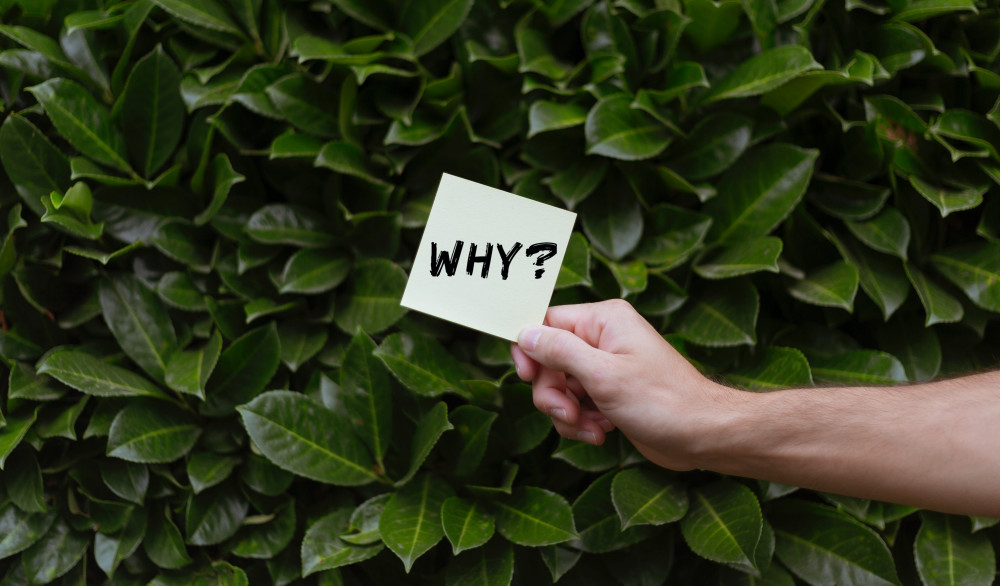WHY YOU NEED A GENEALOGIST
 January 12, 2024
January 12, 2024
Several times in the past, I've offered to help people with their DNA and genealogy research and was told, "No thanks, I think I'll give it a try myself." A few weeks later, they usually come back and say, "Help me out, none of this makes any sense!"
As I've mentioned before, it's possible to solve a family mystery on your own. I mentioned in a previous post, a woman was looking for her birth parents and discovered they both had done DNA tests themselves. Her mystery was solved instantly. Other people may get lucky and find a close relative or a relative that knows the answer to their mystery. This might give you the impression that genealogy is "easy." Sometimes, yes. This is rarely the case though. A big reason for people's confusion with DNA is not because they aren't smart enough to figure things out. When it comes to understanding DNA, experience is a big part of it. The average person who does a DNA test is only going to see their own data. You can't get a full understanding of centimorgan numbers by looking at one match list.
I remember the first list I looked at (my wife's list). After a lot of research, I knew two of the people on the list had the exact same relationship to my wife. They were second cousins once removed. The centimorgan numbers for these two people were completely different however. I was sure one of them was much more related than the other. I spent many hours looking for other connections to explain the excessive amount of DNA one person had. You can find DNA charts and possible relationship percentage lists out there. Those can come in handy and give you some guidance, but there's no substitute for experience when it comes to understanding what is possible with DNA relationships. With the knowledge I've gained over the years, I now know the numbers for those two people on the list make perfect sense.

The average person will never gain the experience needed to solve a lot of these mysteries. That's completely understandable since the average person isn't interested in becoming a genealogist and isn't going to be viewing hundreds of DNA match lists. That's why I'm here. I've literally helped hundreds of people and can save you a whole lot of time and effort if you need help understanding things.
Another important factor that some people aren't good at is, understanding the logic involved in this type of research. You often need to "think outside the box." I often credit my success with genealogy to my understanding of computer programming. Genealogy doesn't involve any "programming," but there's a huge amount of logic and numbers involved sometimes. For Example... If this person is related to that person, then that person can't be related to this other person... unless... that person is related to this other person over there. LOL. Sounds crazy, right? Don't hurt your brain thinking about this stuff. Something else I've learned is, it's actually important to make assumptions in some cases. I'll use a real life example of something I'm working on right now to explain. This will also help you understand how tricky things can get and how even weak matches can lead you in the right direction (or maybe in the wrong direction). This can be hard to explain. Try to follow this madness...
I'm helping a woman named Annie. She doesn't know who her bio father is and has mostly weak DNA matches on his side. There are only about FOUR matches that are really of any value to us. Only two matches are over 200cM. One person had no info about themselves, no family tree, not even their name listed and doesn't respond to messages. For this example, we'll call her Jane. The other person, Linda, has no tree either, but her name alone led me to map out her family to the great-grandparent level.
So, where would you even begin with this? Is it possible to find the birth father with only this info? Well, I have to begin by assuming some things. The DNA numbers for the two people are in the 200s. I'm going to assume they are both 2nd cousins. I don't care if I'm wrong right now, because I have nothing else to go on. I'm just seeing what would happen if that's the case. Next, I can use the "shared match" feature on the site and see if Jane and Linda are related to each other. They are NOT a match to each other. So, before we continue, take a moment to think about what that means, it's a big deal...

Did you get it? If you've read my previous posts about relationships, you know that everyone has four great-grandparents on each parent's side. You also know a second cousin will have two great-grandparents in common with you. What this means is, between Jane and Linda, all four of Annie's great-grandparents are accounted for. Therefore... A sibling of one of Linda's grandparents had a child with a sibling of one of Jane's grandparents. That child would be Annie's father. There's an example of that logic I was talking about. Again, there's some assumptions going on here, but at least we have a place to start looking.
Next, remember I said I knew who Linda's family was. I did some research and was able to determine who her grandparent's siblings were. I also mentioned, Jane has no family tree and there were only two other weaker matches that weren't super distant. Those two are matching to Jane and I saw a common name in their trees. It's an unusual Jewish surname. As far as Jane goes, that's all I've got on her. Next, I looked at those siblings of Linda's grandparents. Guess what... One of them married a man named with the same unusual last name. They had only two children. Both were boys who were born in New York City around 1920. Annie's mom was from New York City and born in 1923. So, we have names that make sense, ages that make sense, a location that makes sense, and DNA numbers that make sense. Does it prove anything? Absolutely not! Remember, I had to assume the two best matches were second cousins, and I'm assuming Annie is matching to the line of those trees with the unusual Jewish name. With more research and hopefully a reply from Jane, maybe something here can be confirmed. Annie is over seventy years old and for the first time, she now has a possible name for her bio father. I'll post an update if new info becomes available. I hope this gave you some understanding of why you might need a genealogist.
My next post is a genealogy tutorial with an unexpected twist.

